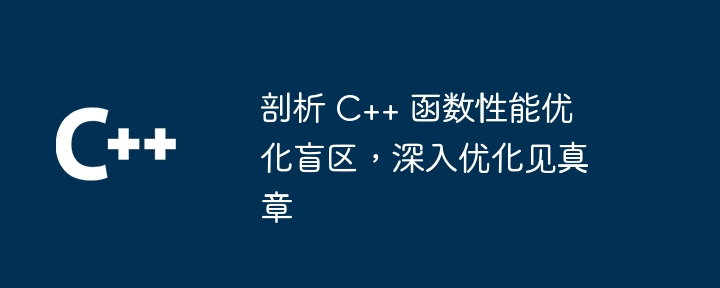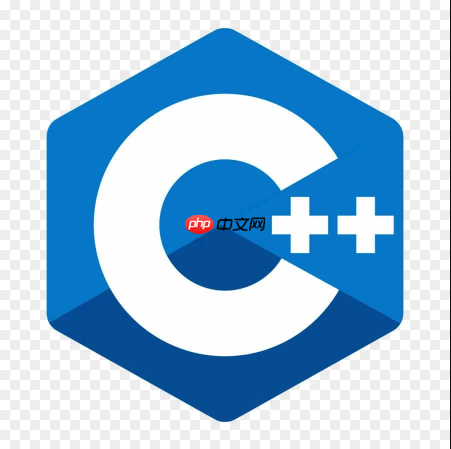优化 c++++ 函数性能需要识别并消除常见的盲区,包括:1. 过量内存分配;2. 复制操作;3. 函数调用开销;4. 缓存局部性;5. 分支错误预测。通过采用内存池、移动语义、内联函数、优化缓存访问和分支预测,可以显著提升函数性能。

剖析 C++ 函数性能优化盲区,深入优化见真章
优化 C++ 函数性能是一项至关重要的任务,但经常被忽视一些重要的盲区。本文将深入剖析这些盲区,并提供实战案例,帮助您显著提升函数性能。
1. 内存分配
excessive memory allocations can severely impact performance. Consider using memory pools or memory allocators to manage memory more efficiently.
// Using a memory pool std::pmr::unsynchronized_pool_resource mem_pool; std::pmr::memory_resource* pool_resource = &mem_pool; std::pmr::polymorphic_allocator<int> allocator(pool_resource); // Allocating using the memory pool int* p = allocator.allocate(100);
2. 复制操作
Avoiding unnecessary copies is crucial for optimizing performance. Utilize move semantics and references to reduce the number of copies required.
// Using move semantics
std::vector<int> vec1;
std::vector<int> vec2;
vec2 = std::move(vec1); // Move semantics avoid copying elements
// Using references to pass arguments to functions
void foo(const std::vector<int>& v) {
// Use v as read-only without copying
} 3. Function Call Overhead
Excessive function calls can add significant overhead. Consider inlining small functions or using lambda expressions to reduce function call overhead.
// Inline small functions
inline int sum(int a, int b) { return a + b; }
// Use lambda expressions to eliminate function call overhead
std::vector<int> v;
std::sort(v.begin(), v.end(), [](int a, int b) { return a < b; }); 4. Cache Locality
Optimizing for cache locality can significantly improve performance. Arrange data and code in a manner that minimizes data cache misses.
// Accessing elements in cache-friendly order
int arr[] = {0, 1, 2, 3, 4, 5, 6, 7};
for (int i = 0; i < N; i += 16) {
// Access elements in cache-friendly chunks
for (int j = 0; j < 16; j++)
arr[i + j] = ...;
} 5. Branch Mispredictions
Incorrectly predicted branches can significantly degrade performance. Use branch prediction hints or optimize code flow to reduce branch mispredictions.
// Using branch prediction hints
int foo(int n) {
if (n >= 0) // Most likely branch
return n;
else // Least likely branch
return -n;
} 总结
通过识别和消除这些盲区,您可以显著地提升 C++ 函数性能。利用这些优化技巧,您将能够创建更快速、更有效率的代码。
以上就是剖析 C++ 函数性能优化盲区,深入优化见真章的详细内容,更多请关注知识资源分享宝库其它相关文章!







发表评论:
◎欢迎参与讨论,请在这里发表您的看法、交流您的观点。